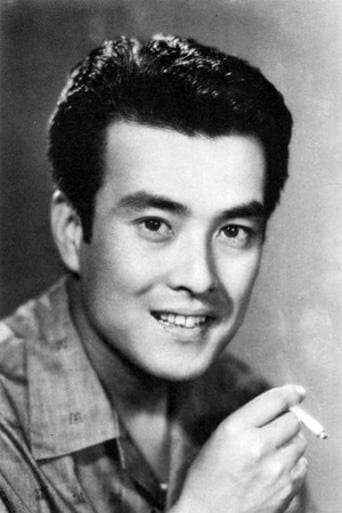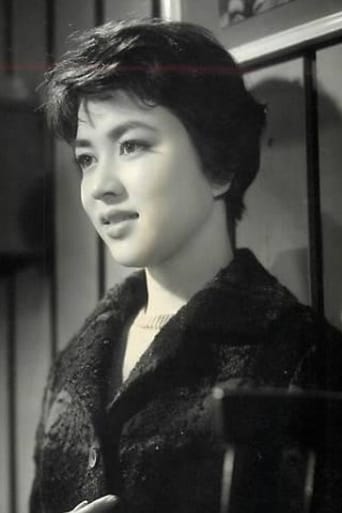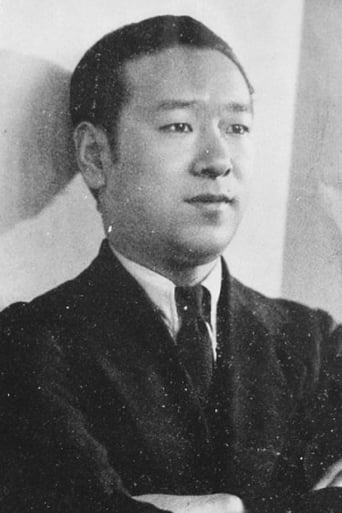Steineded
How sad is this?
Smartorhypo
Highly Overrated But Still Good
XoWizIama
Excellent adaptation.
TrueHello
Fun premise, good actors, bad writing. This film seemed to have potential at the beginning but it quickly devolves into a trite action film. Ultimately it's very boring.
holly
A few minutes in I realized this is not the 1968 film of the same name, the camp classic staring a female impersonator.... I had no idea the same film had been made only 6 years earlier staring a woman, and to my delight the original is just as fabulous, peppered with weird musical sequences, off kilter camera angles, and dynamic theatrical lighting - yet also somewhat edgier by doing it first and by playing it "straight".... I imagine it was an evolution similar to John Water's Hairspray - a low-budget movie which became a Broadway musical and then again a film.... Most reviews credit Yukio Mishima as adapting the stage show from the original novel - he absolutely did not, the source is clearly this film. Aside from the gendered casting, the two versions of Black Lizard are identical scene for scene. The remake is more slick, has extra sequences, and plays as a comedy. However the original is just as stylish, strange and seductive. Ms Kurotokage is a mastermind jewel thief whose capers are becoming more brazen and fetishized. She enjoys putting herself right into danger, publicly confronting her victims and then escaping in disguise. Vain and immoral, she takes great pleasure in outwitting her victims, even explaining the crime to them as it is happening. Her desire to steal "jewels" extends to young beautiful people she collects to use as pawns in her game of match-wits with a master detective Akechi Rampo, the only man who truly understands her.... How can she not fall in love? "Crime and detectives are two sides of the same coin" she tells him. And "You romanticize crime."Although the remake is perhaps better known (it had a festival revival in the 1990s and a limited DVD release), don't pass up the opportunity to also see the gem that spawned it. Everything that makes that film entertaining is also here: the uncompromisingly fabulous villain-protagonist with devoted servants, over-the- top speeches about love and crime (some simultaneous between her and the detective in split-screen), and most (if not all) of the magical visual moments are here too, like characters stepping into a spotlight to speak their thoughts in monologue - in this case it seems less a campy veneer, and more as inspired theatrical tricks to hide small cheap sets and and keep chewy dialog entertaining. Little wonder it translated so well into a successful theater show.
MartinHafer
As I sat and watched "Kurotokage", I kept wondering if it had first been a story taken from a Japanese Manga, as it had a very strong comic book look to the film as well as the plot. It felt a bit like "Golgo 13" or "Lupin III"--but it also was, oddly enough, a film with musical interludes! The film is about a master thief known only to the authorities as 'Black Lizard'. Little did they or detective Kogoro Akechi know that this person was a woman--and an incredibly smart one at that. The plot involves Black Lizard's attempt to kidnap a rich man's daughter so she can force him to give him a HUGE ransom--but there is, of course, more to it than that.This film is filled with weirdness above and beyond the plot. Often, the lighting changes and characters (mostly Black Lizard) have little surreal song and dance numbers! It all comes off as very campy and strange--but also a lot of fun. While the film is pretty much a comic book and the story is a bit silly, it is worth seeing just for its weirdness factor. Oddly enjoyable.
sgcim
You won't be bored if you're lucky enough to find this odd detective story with dancing and a few songs available somewhere. I saw it on TCM, which has become the only channel left that airs interesting, obscure films. I wouldn't call it a musical, because it only features three songs, and only two of them are actually sung by characters in the film.The songs are jazz-influenced and have surreal lyrics that fit in pretty well with the surreal dialogue of this very strange tale. The four main characters are "Japan's Greatest Detective"- Akechi, the notorious Black Lizard, Japan's wealthiest man, and his daughter- Senia. Each character seemed weird beyond belief to this Westerner, although they might seem commonplace to Japanese people. It's a pretty ordinary jewel thief/kidnap plot, but what they've done with it is anything but typical. In Psychotronic fashion, these are some of the things you have to look forward to: the recurring jazzy theme song that has lyrics you'd find in a combination metaphysical/death metal song, stuffed corpses that get up and dance when no one's around, a recurring whistled jazz theme,a sofa that is puked on and is somehow able to hide a person in and eventually wind up in the Pacific Ocean, and motivations and dialogue which seem to belong to a socialist-themed, OCD romantic Japanese opera.
fertilecelluloid
Not to be confused with Kinji Fukusaku's BLACK LIZARD (a slightly inferior effort), this earlier version, directed by Umeji Inoue, is groundbreaking for its brilliant use of theatrical-style lighting and sensational dance choreography.Based on a novel by Japan's master of suspense, Edogawa Rampo, this is a fascinating suspenser about an androgynous jewel thief.Much of the film takes place on sets, rendering many sequences strangely artificial but richly surreal.Toshiro Mayuzumi's score is so original it's scandalous, and Yoshihasa Nakagawa's photography is simply breathtaking.Fukusaku's version, also very good, lacks the stylization of this original adaptation of Rampo's novel probably because the subject matter was not Fukusaku's traditional bag.





